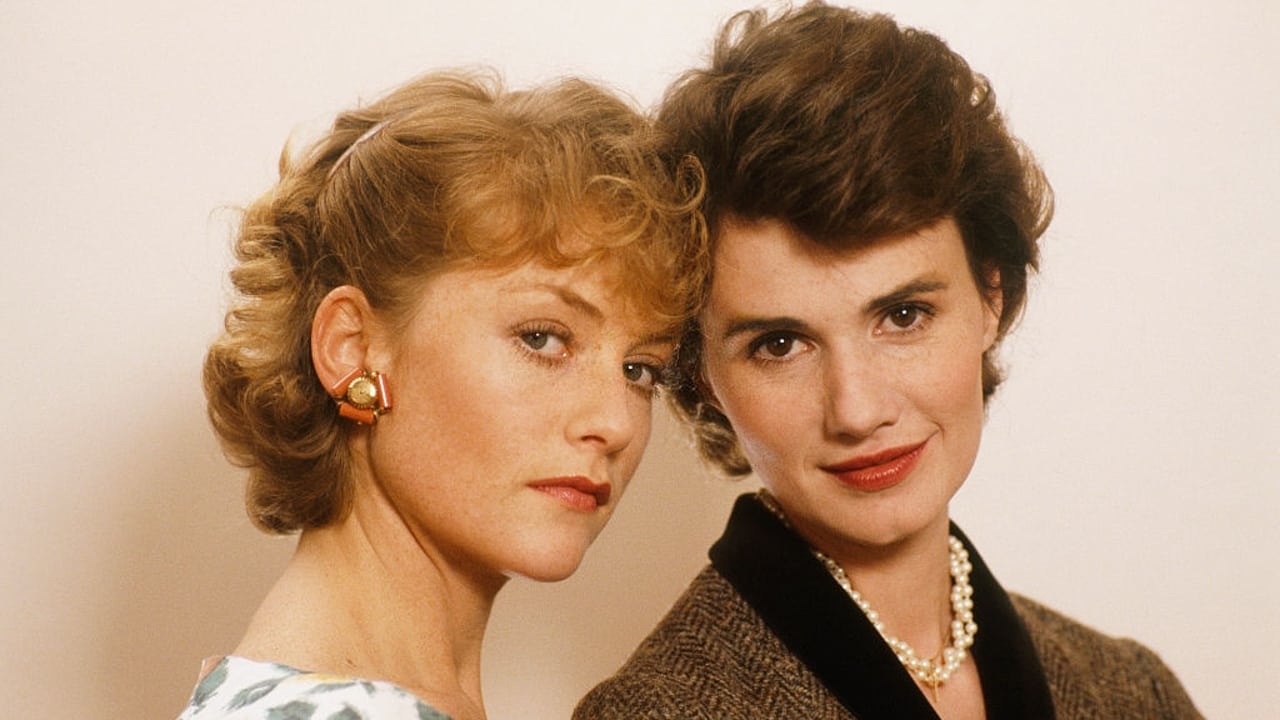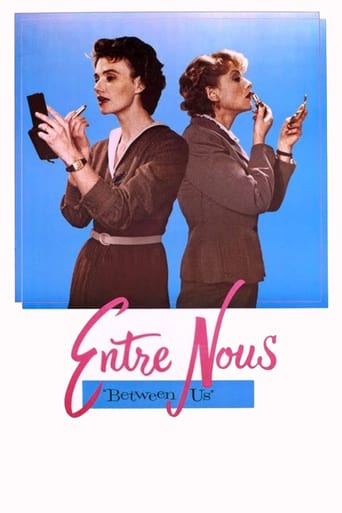



Wonderful character development!
Great visuals, story delivers no surprises
A bit overrated, but still an amazing film
It's a movie as timely as it is provocative and amazingly, for much of its running time, it is weirdly funny.
View MoreThis is a fine movie any way you look at it in fact I'll amend that to Fine/Great and I'd love to own it on DVD so that I could run it just before La Baule-les-pins (which I do own) and which covers the same autobiographical data from another angle. For the record both films are based on the early life of writer-director Diane Kurys and both concern the unhappy marriage of her parents - a character based on herself appears in both movies. Coup de foudre begins before she was born with the meeting of her parents in a 'camp' in Occupied France during World War II. A guy whose release is already guaranteed spots Isabelle Huppert, falls in love on the spot (hense the title) and smuggles her a note proposing marriage. Somewhat bemused she agrees only to become angry because his name reeks of Jewishness. Somewhat improbably they remain together, have two daughters and settle in Lyon. Simultaneously we are introduced to the second leading character (Miou-Miou), an artist whose husband is shot by the Germans and dies in her arms. She too 'settles' for something less than love and marries an actor (Jean-Pierre Bacri) whose life is a succession of get-rich-quick schemes that backfire. The two women meet by chance in 1952 and form a friendship that soon eclipses anything they feel for their respective partners whilst stopping short of overt lesbianism. Huppert and Miou-Miou have their parts down cold and it's fascinating to see Bacri with a full head of hair looking remarkably like Louis Jordan. This is a wonderful film on our old friend the Human Condition illustrating just how easy it is to screw up our lives. The pertinent questions - like why did Huppert stay with someone she didn't love once she was clear of the Camp, let alone after the war, don't raise their quizzical heads til long afterwards such is the strength of both movie and performances. In La Baule-les-pins the Huppert character, Lena (now played by Nathalie Baye) is still with her husband but clearly only for a matter of time and the two girls are still in the thick of the misery. Both are highly recommended.
View MoreFor years, I've heard glowing praise of this movie....now that I've seen it, I feel the praise is largely undeserved. The movie gets off to a bad start: It's unclear (at least from the subtitled version I saw) where the heck the characters are. It's obviously Europe and some kind of World War II era camp, but that's all I could glean....And in the early scenes with Miou Miou, where her first husband gets shot, it wasn't clear who was doing the shooting and/or why. According to the description on this site, it was the "resistance," whatever that means....(to be fair: perhaps most Europeans in 1983 understood the history without needing reference books, but this U.S. home video viewer in 2002 would have appreciated a bit more historical context)As for the rest of the film....Slow, slow, slow. And with a lot of extraneous elements that never seemed to go anywhere. Frankly, I was hoping for more romance between the two women, which you never really see. You just get Isabelle Huppert's husband being angry all the time. And for the record, I didn't like the way the Miou-Miou character kept insulting her young son. None of these characters were particularly likeable, not even Isabelle Huppert. The ugliness of the characters detracted from my enjoyment of this, too.I suppose this was considered really "avant garde" or something, in terms of subject matter, back in 1983, when it was released. But today it just falls really flat. A disappointment.
View MoreI wasn't sure where this movie was going at first, but as it picks up the pace there is little doubt as to whom the nous in the title refers.When Huppert says "Je tu manque" (pardon my French it is I hope close) "I miss you" she might as well be declaring the love that is boiling out of her. But there is the problem of the spouses to be resolved, and the children. Needless to say all is reconciled and true love triumphs.I have seen this movie at least three times now and love it more each time. There is a tenderness between most of the characters (one is a lout pure and simple) but the others all strive to reconcile who they are to to events that enfold them. Their struggles hit all of the right notes (with the possible exception of a very steamy sex scene on a train which just doesn't work for me)It is a tear jerker at times, but a beautiful tear jerker. and so I always did like those forties movies.
View MoreSubtitles are unevenly paced, often uncoupled with dialogue, in the version I saw. I had to rewind frequently and sometimes use the pause button to catch everything.
View More